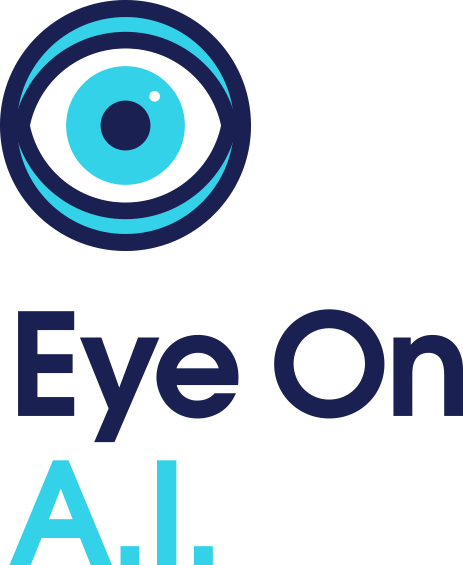Week Ending 3.1.2020
RESEARCH WATCH: 3.1.2020
This week was active for "Computer Science", with 1,117 new papers.
The paper discussed most in the news over the past week was by a team at University of Sheffield: "Online Abuse toward Candidates during the UK General Election 2019: Working Paper" by Genevieve Gorrell et al (Jan 2020), which was referenced 7 times, including in the article New artificial intelligence tools could help tackle online abuse in University of Sheffield.
Leading researcher Yoshua Bengio (Université de Montréal) published "On Catastrophic Interference in Atari 2600 Games".
Over the past week, 94 new papers were published in "Computer Science - Artificial Intelligence".
The paper discussed most in the news over the past week was by a team at New York University: "The Next Decade in AI: Four Steps Towards Robust Artificial Intelligence" by Gary Marcus (Feb 2020), which was referenced 5 times, including in the article NeurIPS 2020 Changes Review Process; Hinton & Google Brain Unsupervised Model Boosts ImageNet Accuracy 7%; DeepMind Releases New JAX Libraries in SyncedReview.com. The paper author, Gary Marcus (New York University), was quoted saying "The Next Decade in AI: Four Steps Towards Robust Artificial Intelligence."
Leading researcher Yoshua Bengio (Université de Montréal) came out with "On Catastrophic Interference in Atari 2600 Games".
This week was active for "Computer Science - Computer Vision and Pattern Recognition", with 239 new papers.
The paper discussed most in the news over the past week was by a team at University of Chicago: "Fawkes: Protecting Personal Privacy against Unauthorized Deep Learning Models" by Shawn Shan et al (Feb 2020), which was referenced 3 times, including in the article New face-cloaking tool 100 percent effective against Amazon, Microsoft, Face++ in testing in BiometricUpdate.com. The paper author, Tao Li, was quoted saying "The target of this technique is to fool face detection algorithms, which has been shown to be more capable than human beings, and, in the meantime, preserve the perceptual quality for human eyes".
Leading researcher Pieter Abbeel (University of California, Berkeley) came out with "Hallucinative Topological Memory for Zero-Shot Visual Planning".
Over the past week, 18 new papers were published in "Computer Science - Computers and Society".
The paper discussed most in the news over the past week was by a team at University of Sheffield: "Online Abuse toward Candidates during the UK General Election 2019: Working Paper" by Genevieve Gorrell et al (Jan 2020)
This week was active for "Computer Science - Human-Computer Interaction", with 31 new papers.
The paper discussed most in the news over the past week was by a team at University of Bristol: "Isness: Using Multi-Person VR to Design Peak Mystical-Type Experiences Comparable to Psychedelics" by David R. Glowacki et al (Feb 2020), which was referenced 6 times, including in the article Want Mystical Experiences Without Psychedelics? Try Virtual Reality in The Fresh Toast.
This week was extremely active for "Computer Science - Learning", with 471 new papers.
The paper discussed most in the news over the past week was by a team at New York University: "The Next Decade in AI: Four Steps Towards Robust Artificial Intelligence" by Gary Marcus (Feb 2020)
Leading researcher Yoshua Bengio (Université de Montréal)
This week was active for "Computer Science - Multiagent Systems", with 23 new papers.
Over the past week, 33 new papers were published in "Computer Science - Neural and Evolutionary Computing".
The paper discussed most in the news over the past week was "Learning to Continually Learn" by Shawn Beaulieu et al (Feb 2020), which was referenced 2 times, including in the article OpenAI’s Jeff Clune on deep learning’s Achilles’ heel and a faster path to AGI in Venturebeat. The paper author, Jeff Clune (University of Wyoming), was quoted saying "This is relatively unheard-of in machine learning. To my knowledge, it’s the longest sequence of tasks that AI has been able to do experiments to and at the end of it, it’s still pretty good at all the tasks that it saw".
Leading researcher Pieter Abbeel (University of California, Berkeley) came out with "Generalized Hindsight for Reinforcement Learning".
This week was very active for "Computer Science - Robotics", with 73 new papers.
The paper discussed most in the news over the past week was "Design and Experiments with a Low-Cost Single-Motor Modular Aquatic Robot" by Gedaliah Knizhnik et al (Feb 2020), which was referenced 3 times, including in the article Modboat: A low-cost aquatic robot with a single motor in Tech Xplore. The paper author, Gedaliah Knizhnik (Researchers), was quoted saying "Our robot is not as good a swimmer as some other robots, but this design is unique in that it only uses one motor, when standard convention dictates you need at least two".
Leading researcher Pieter Abbeel (University of California, Berkeley)

